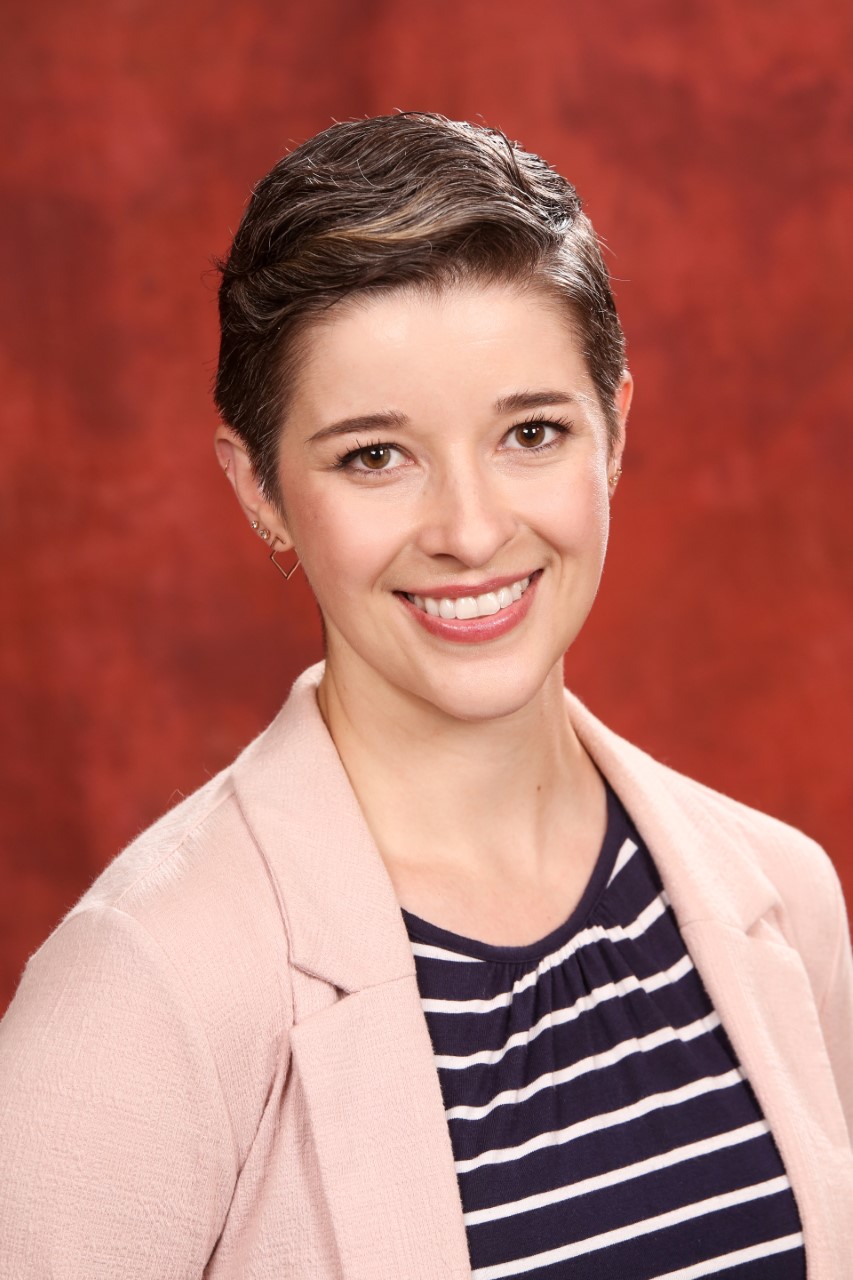FSU Assistant Professor joins the Florida FIRST program to further Alzheimer’s prevention research

The Florida FIRST program welcomes Dr. Julia Sheffler, a talented and passionate researcher in the field of Alzheimer’s disease prevention, to its team of Florida FIRST faculty.
Dr. Julia Sheffler is an Assistant Professor in the Department of Behavioral Sciences and Social Medicine within the College of Medicine at Florida State University (FSU) and serves as the Director of the Integrative Science for Healthy Aging laboratory at the FSU Center for Translational Behavioral Sciences (CTBS). Dr. Sheffler obtained her Bachelor’s degree from Southern Illinois University, her PhD in Clinical Psychology at Florida State University, and she completed her clinical internship at the Denver VA Medical Center. 
Dr. Sheffler's research focuses on developing scalable lifestyle interventions for Alzheimer’s disease and other late-life health problems. Her earlier work focused on examining risk and resiliency factors related to late-life health and cognitive functioning in large epidemiological samples. This research shift was motivated by experiences working with patients and a deep desire to bring patients improved treatment and prevention options when facing cognitive decline. Dr. Sheffler has wholeheartedly devoted her career to creating interventions that foster adherence to lifestyle modifications that can directly impact Alzheimer’s disease pathology. Through her efforts, she aspires to revolutionize approaches to preventing and managing Alzheimer’s disease.
Dr. Sheffler embarked on her path of research during her undergraduate studies, driven by her grandmother's struggle with dementia. Witnessing this illness firsthand ignited her quest for identifying strategies to prevent its onset and enhance the well-being of those at risk. This driving force led her to forge a career dedicated to the prevention of Alzheimer’s disease and successful aging more broadly.
“After seeing my grandmother suffer from Alzheimer’s during my high school years and throughout my undergraduate studies, I felt a deep desire to contribute to the field of Alzheimer’s prevention. I wanted to find tangible ways to make a difference in the lives of those affected by this disease,” shared Dr. Sheffler.
Having completed her postgraduate studies at FSU, Dr. Sheffler became a valued member of the university’s Center for Translational Behavioral Sciences, where she has been actively working for the past five years. Throughout her time at FSU, she has gained a substantial amount of knowledge in the field of Alzheimer’s prevention, as well as developing behavioral interventions.
“During my time as a clinician, I realized the pressing need for effective treatment options. It was frustrating to diagnose patients with dementia-related conditions but not have sufficient resources to help them make lifestyle changes. This realization fueled my determination to bridge the gap between diagnosis and intervention,” explained Dr. Sheffler.
Dr. Sheffler’s research focus prioritizes finding ways to increase adherence to lifestyle interventions for Alzheimer’s disease. She acknowledges the potential of lifestyle modifications, such as diet, sleep, and physical activity in preventing and slowing the progression of the disease. However, she also recognizes the challenges that people face when trying to adopt and maintain these changes, particularly in rural areas where resources may be limited.
Overcoming barriers like accessibility and affordability of effective interventions is a priority for Dr. Sheffler. She is undertaking research to tackle these challenges by creating intervention initiatives that can be easily implemented within communities ensuring accessibility for everyone. By prioritizing adherence and scalability, her goal is to develop a program that offers effective interventions that also supports individuals in maintaining positive lifestyle changes long-term.
At the heart of Dr. Sheffler’s research is the development of a unique program that combines a Mediterranean ketogenic nutrition plan with strategies like motivational interviewing and cognitive behavioral therapy. This program emphasizes the use of ketogenic nutrition to enhance energy metabolism in the brain and improve insulin sensitivity specifically targeting the physiological changes associated with Alzheimer’s disease. By customizing the program to suit the needs of rural older adults, Dr. Sheffler aims to maximize its impact and extend its application to other lifestyle interventions.
Although still in the developmental phase, Dr. Sheffler’s program has displayed promising results during early pilot studies. Many participants have reported positive outcomes while engaging in the program, but the challenge lies in maintaining these changes once the program concludes. Recognizing the importance of support and strategies for long term adherence, Dr. Sheffler is using participant feedback about the program combined with focus groups to continually improve the quality of the program and tailor its delivery to better meet the needs of the community.
The groundbreaking research conducted by Dr. Sheffler has gained recognition and support from the Florida FIRST program at Florida State University and the Florida Department of Health. This funding provides her with the resources to further develop her program and address the issue of long-term adherence. The study aims to refine the interventions design by incorporating input from the community, thus enhancing its effectiveness and relevance for populations.
As Dr. Sheffler embarks on this phase of her research journey, she brings not only enthusiasm for advancing her work, but also an appreciation for the cohort model of the Florida FIRST program. Surrounded by early career researchers who share her passion, she looks forwards to a collaborative environment that fosters cooperation, resource-sharing, and the exchange of ideas. Dr. Sheffler firmly believes that this unique community of researchers all striving to achieve the highly sought after R01 grant within three years will propel her research.
In addition to the cohort model, Dr. Sheffler will continue to be mentored by CTBS founder and director, Dr. Sylvie Naar. They have worked together since 2018 when Dr. Sheffler began her work at CTBS. Dr. Naar has expressed how Dr. Sheffler’s team science approach of integration of behavioral science, nutrition science, genetics and community engagement is what sets her apart form of researchers in her field.
“Watching her achieve independence and a tenure-track position despite life’s challenges has been the highlight of our relationship. Dr. Sheffler is passionate, persistent, and multitalented,” says Dr. Naar.
With her unwavering dedication, drive, and innovative approach Dr. Sheffler is set to make an impact in Alzheimer’s disease prevention. Her dedication to creating interventions that are not only effective but also accessible and enduring, distinguishes her as a promising figure in the field. Through her efforts to empower individuals to adopt healthier lifestyles, she is paving the way for a future in the battle against Alzheimer’s disease.
Dr. Sheffler’s research serves as a beacon of hope, inspiring others to join the cause and bringing us closer to a world liberated from the grip of Alzheimer’s disease. As her program evolves and expands, we eagerly anticipate the impact it will have on individuals, families and communities affected by this disease.
